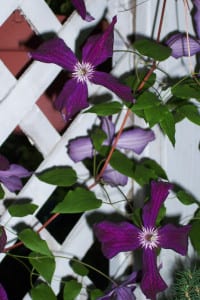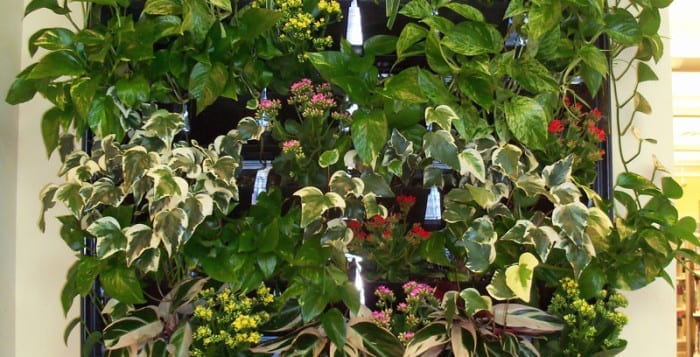By Ellen Barcel
Whether you live in a condo or apartment with only a patio to grow a garden, a trailer with just a tiny patch of land around your rental space or a house on just a small patch of land (i.e., the trend toward tiny houses), you may find that your need to garden has been thwarted by small space. Sometimes there’s a little pocket of land that’s a challenge. Maybe your property is heavily treed with only a small patch of ground available for gardening. Whatever your “tiny” problem, there are solutions that will allow you to indulge your passion for gardening.
No matter what the tiny problem, you still need, of course, to take into consideration all the things that any other gardener needs to deal with: the amount of rain your plants will receive, the amount of sun in the area, the type of soil you have, the hardiness zone you live in, etc.
Planters
If you decide because of space to grow your plants in pots, that makes things easier in one way. You can select potting soil that is geared to your specific plants: general soil for most plants, soil for roses, cacti, etc. Planters have another advantage in that they can be moved as needed. If, for example, when the nearby trees leaf out, there’s too much shade, you can reposition the planters to a sunnier spot. All kinds of ornamentals can be grown in planters including flowers and small evergreen trees. Fruits such as blueberries and figs and even dwarf apple trees can be grown in tubs. Veggies, if selected carefully can also be grown in planters.

Hanging baskets
Don’t overlook hanging baskets. They really allow you to grow many more plants than you might otherwise. And, hanging baskets, while wonderful for ornamentals, are great for herbs and even small fruit like strawberries and veggies such as cherry tomato plants (yes, technically a fruit). Hanging baskets can be attached to various overhangs around your house or apartment such as a cover over a porch and can even be freestanding, hanging the pots from appropriate stakes in the garden.
Trellises
Trellises allow for vertical gardening. Plants such as cucumbers take up a small amount of ground but need vertical support. Trellises are also ideal for vining ornamentals such as clematis or morning glory. Fences can act like a trellis as well.
Wall garden
If you’re only looking for ornamentals, consider a wall garden. The supports and pots for a wall garden are available in all sorts of gardening catalogues and local nurseries. Wall gardens can be grown indoors on a sunny wall with indoor plants or can be set up outdoors, remembering that the plants will probably have to be replaced each spring.
Remember that when you are growing plants in planters, wall gardens, on trellises or in hanging baskets that you must be careful to make sure that they get adequate amounts of water since any of these planters can dry out more quickly than plants in garden soil. Clay pots tend to dry out more quickly than man-made materials. Sometimes plants with large leaves will act like a small umbrella and cover the potting soil during rain, so check. Also, you need to make sure that the plants get sufficient amounts of fertilizer, especially if you’re growing heavy feeders like tomatoes.
Tiny statuary, even fairy garden items, are ideal in a small garden, but don’t overcrowd the garden with too large or too many pieces or, in a rock garden, boulders.
Once you decide what you want to grow and how you will plant it, select the variety of plant most suited. If you want blueberries, get dwarf plants. If you love roses, get a collection of tiny rose bushes with their tiny blooms, etc.
Ellen Barcel is a freelance writer and master gardener. Send your gardening questions and/or comments to [email protected]. To reach Cornell Cooperative Extension and its Master Gardener program, call 631-727-7850.





